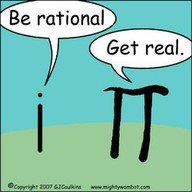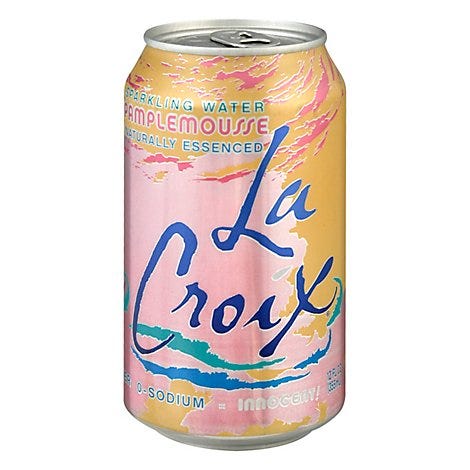Like many, mine has been a summer of vacation and travel. My most recent trip was a weekend in Chicago, which I found to be a beautiful city. It was walkable, clean and friendly, the architecture was spectacular, and the food scene was fantastic. I ate more deep dish pizza than I could have wanted, visited the North Avenue Beach and Lincoln park zoo, and avoided the Chicago School of Economics at all costs.
What does the Chicago School of Economics know? Does it know things? Let’s find out!
In the industry there are two main schools of economic thought. The Chicago School, and the Keynesian. The Chicago school generally stresses the invisible hand and that free markets are the most efficient way to allocate goods in society and that the government should play a limited role. The Keynesian view suggests that consumers operate on “Animal spirits,” or feelings about the economy, and that the government should step in and correct for these seemingly random swings in emotion. I personally lean more Keynesian. Meaning that I celebrate when the government is involved in making new climate legislation, and that positive vibes about the economy do seem to materialize in actual economic data.
Jokes aside though, I do think there is some merit to the neoclassical approach. Specifically, I find Friedman’s idea of educational vouchers for K-12 intriguing, that a market system usually is the most efficient way to allocate goods, and that generally people are motivated to act in their own self interest.
Planet Money has a pretty good TikTok to summarize:
To be or not to be… rational
At the core of the two schools is the debate around rationality (linking to an interesting Atlantic article on the topic). If consumers are said to be rational they end up making choices that serve their own best interest. The free market then corrects accordingly to these choices. If consumers are not rational but rather irrational, the government should step in and correct for these irrational behaviors, and push us around like the sheep that we are towards the best outcome for society. Hence, depending on how you view rationality informs your choice on economic school of thought.
Underlying this choice to believe if consumers are rational or not is another important assumption: information collection is costless. In order to make a truly rational choice, all information must be considered by the individual. Otherwise, the individual who may be considered as rational, may end up making an irrational choice since they are not able to see all of the benefits and costs of the decision. And in my opinion, this happens more frequently than we think.
For example, while buying insurance recently I faced the problem of
Not knowing all the insurance companies
Not knowing what I wanted in my insurance policy
Not knowing the prices of each insurance company for me
So I picked a few companies I could recall the names of from various ads (yes even though I dislike insurance ads they worked to get me as a customer) and got a quote. Now, 3 months later, I’m shopping again for insurance because I got a letter in the mail saying I could get a better rate. (I know, very old-school of me to receive mail!)
While buying insurance I had what’s called a search cost in obtaining information. Of course given an apples to apples comparison I would choose the rational option of a lower price, but finding that comparison takes time and effort. So I made an irrational choice to overpay for insurance.
Rationality is a matter of perspective
I’m suggesting it would be considered irrational since my demand for insurance is highly elastic. That is, I’m highly sensitive to changes in its price. I see insurance as a commodity, that insurance from Geico is exactly equal to insurance from State Farm, so I will choose the cheapest option. Alternatively, say for some reason I really enjoyed Geico commercials more than State Farm’s, and developed an affinity for Geico which caused me to become loyal to them. Then, my brand loyalty would cause me to be ok with paying more for the commercials I preferred, and I would become rational in my choice.
A tangential example I actually subscribe to is seltzer waters. I am VERY brand loyal to LaCroix sparkling water. I find it to be refreshing and really like that there are trace amounts of flavor, compared to other seltzer waters which have more flavoring. But more than that, I just enjoy the feeling of fitting in with the alternative, Pinterest, indie-style brand that the company has established for itself.
To others, all seltzers might be the same. But to me, I’m irrationally loyal to LaCroix. I can say that I’m relatively inelastic in my demand. Meaning that I am not very sensitive to price changes, so to some extent I am a price taker. But if push comes to shove, there would be a price I would substitute towards Perrier instead of LaCroix.
Why this is important is because whether consumers are actually rational or irrational depends on a multitude of factors including the costless information assumption, but I think it also depends on the elasticity. For a variety of complex reasons a person may choose to be inelastic about some things that others are completely elastic for. On aggregate, this manifests as some people seeming to be irrational when in reality the better question might be “irrational to who?” Just because I perceive value in LaCroix and no value in a specific insurance doesn’t mean that others might not observe the opposite.
Does this help us much in determining whether consumers are rational or not? Not really. Between search costs, misinformation, brand loyalty, scams, and many other factors, it can be easy to get confused and just buy stuff. Which ultimately, I think is what happens. Does it mean that the Keynesians are wrong for thinking that vibes matter? Or that markets can’t be used to provide innovative solutions and allocate goods efficiently? Again, not really.
Here, the solution isn’t just to have one or both sides compromise. The solution also isn’t just to pick one camp and hope that it wins. Both the Chicago School and the Keynesians may be valid in some aspects, but have shortcomings in others. Overall the goal isn’t so much about winning but taking the best parts of each and using them to uncover the truth. This is not a zero sum game. Pride and ego have no place in the advancement of knowledge and just because you lean one way doesn’t mean you can’t agree with something from the other. A lesson that may apply to the US political arena as well :)
P.S. Whether you feel like you are a perfectly rational actor minimizing costs relative to value, or simply a person wandering around and sometimes gets confused about what is a good deal, if you like UTF then feel free to contribute to my business Venmo account @Frunk-Economics. I’ve written previously about crypto and paywalled posts, so until the technology catches up this is my work-around. Thanks and cheers for helping me make more content!







